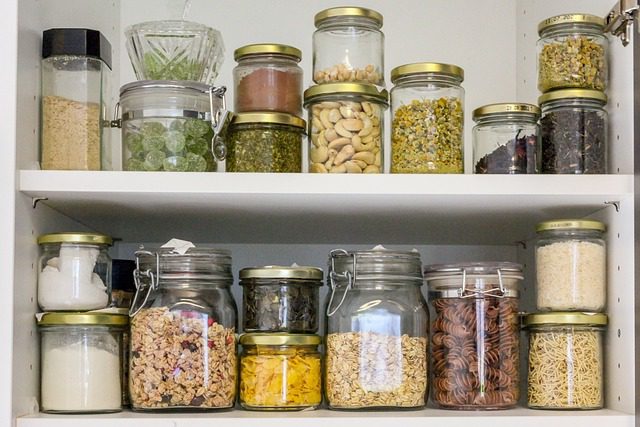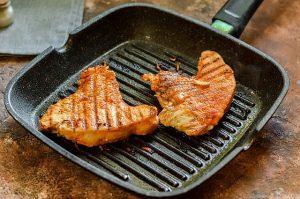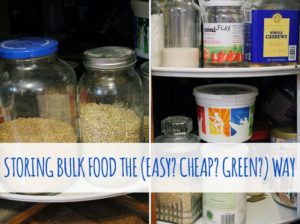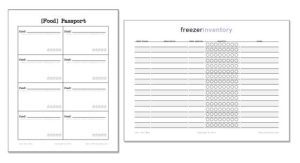Having these essential foods around will be useful for when you need to cook a meal quickly or just want something simple to snack on. You can also use these ingredients in baking or cooking other dishes! So stock up your shelves with these items today and start living a more prepared lifestyle!
Table of Contents
Dried Beans
Dried beans are a staple in any pantry. They are an excellent source of protein and fiber. There are various ways that dried beans can be cooked. Beans can be added to soups, stews, or chili, or they can be served as a side dish. Therefore, having a variety of beans in your pantry, including black beans, kidney beans, and pinto beans, is recommended. Since they can be stored for a long time, do not hesitate to wholesale dry beans, as they can be a pantry lifesaver. Bulk beans are usually cheaper than buying canned beans, and they are also healthier because there is no added salt or preservatives.
Also, bulk buys usually provide the lowest price for dry goods, so always be on the lookout.
Pasta
Another essential food that every pantry needs to have is pasta. There are many types of pasta available, including spaghetti, angel hair, lasagna, and penne. The best way to store pasta is in airtight containers in a cool, dark place because exposure to heat can reduce shelf life. Spaghetti and other long pasta should be stored vertically to prevent them from getting tangled. On the other hand, short pasta like macaroni can be stored horizontally.
To be on the safe side, always check the expiration date on pasta packages and discard expired ones.
Oil and Types of It
Oils are used for cooking and baking, and they come in a variety of flavors, including olive oil, canola oil, and vegetable oil. For example, olive oil is a good choice for cooking Mediterranean dishes, while canola oil is the best option for deep-frying. It is important to have a variety of oils in your pantry because each one has its own unique flavor and properties.
Different types of oil also have an expiration date. For example, the shelf life of olive oil is around two years, while vegetable and canola oils can last up to five years. The rule of thumb about storing oils is that they should be kept in a cool, dark place with the bottle tightly closed. As always, check the expiration date before buying oil and discard any past their prime.
Different Types of Flour
There are many different types of flour, including all-purpose flour, whole wheat flour, and self-rising flour. All-purpose flour is the most common type of flour, and it can be used for a variety of recipes. Whole wheat flour is made from 100% whole wheat kernels, and it has a nutty flavor. Self-rising flour already has baking powder and salt added, so it’s perfect for making biscuits or pancakes.
Flour should be stored in a cool, dark place to prevent it from going rancid. Also, flour especially needs to be protected from pests. Flour moths are a common pest that can infest flour, and not forget rodents and other bugs that will invade your flour sources. Therefore, always use airtight containers to store your flour.
Sugar
Another essential food that every pantry needs to have is sugar. Not only is sugar a sweetener, but it is also used in cooking and baking. Therefore, having a variety of sugars in your pantry, such as confectioner’s sugar, light brown sugar, granulated sugar, raw sugar, and powdered sugar, is recommended.
It’s important to keep the different types of sugars separate because they cannot be used interchangeably. Brown sugar should not be substituted for white sugar or vice versa because they both have unique properties that affect the outcome of recipes. All sugars should be stored in an airtight container, so they stay fresh longer and be protected from the moist or hot environment of the kitchen.
Salt
Table salt is usually used for cooking, while sea salt is used for seasoning food. Salt is also used to preserve food, so it’s important to have a variety of salts in your pantry, including iodized salt, kosher salt, and sea salt. They all contain sodium, even though there is less than in regular table salt. Hence, it’s important for people who want to limit their use of artificial additives to read the labels on products before purchasing them so they know what they are getting.
To prevent salt from clumping and becoming unusable, salt should always be stored in an airtight container. Because it is not used in big amounts like other food staples, salt will last about two years.
Water
Believe it or not, it is important to have water in your pantry. There are two types of water: spring water and tap water. Springwater comes from a natural spring with no added chemicals. On the other hand, tap water can taste different depending on where you live because the local municipality may treat it.
Whether you choose spring or faucet water, one thing is for sure: having a supply of bottled drinking will save you during disasters when clean drinking water might not be available immediately. Bottled drinking should always be stored properly, so they do not go bad before being consumed.
Baking Powder/Soda
Another essential food that every pantry needs are baking essentials like baking powder and baking soda. Baking powder is a leavening agent for baked goods that use acidic ingredients like lemon juice or buttermilk. On the other hand, baking soda is most commonly used with alkaline ingredients such as molasses and vinegar. However, both are shelf-stable if stored in an airtight container at room temperature, so they don’t go bad quickly.
Baking soda/powder is also great to have on hand for many other things such as cleaning, deodorizing, and freshening.
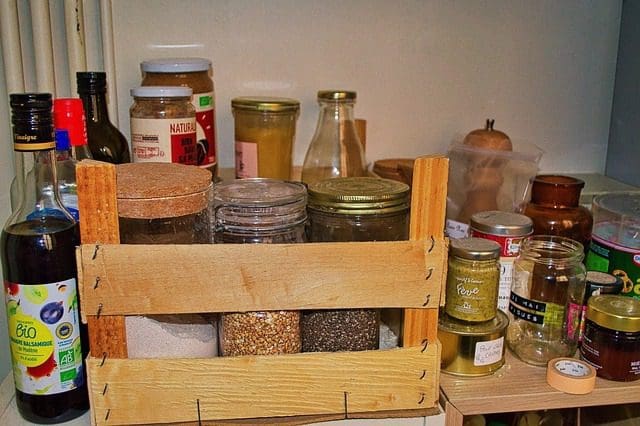
Many of these essentials are used every day, and it’s important to make sure to have the right ones on hand. Hopefully, this article has given you a better idea of what should be in your pantry at all times. To help you figure out which essential food staples are best for your needs, take some time to think about how often you cook or bake with them, and then add more accordingly.
Featured Image by Filmbetrachter from Pixabay

